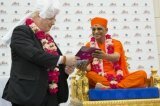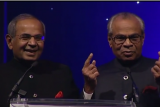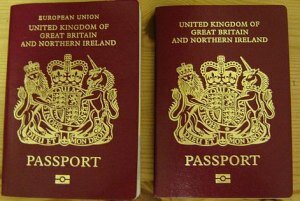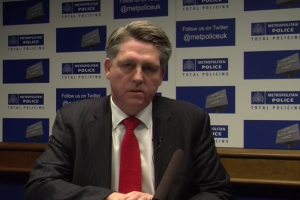Nobel Prize winning British scientists visit India to deliver lectures
Dr Venkatraman “Venki” Ramakrishnan [pictured] is a Fellow of the Royal Society, and a Fellow of Trinity College, Cambridge. He won Nobel Prize in Chemistry in 2009 and was also honoured with Padma Vibhushan in 2010. He will speak in New Delhi, Hyderabad, Bangalore, Pune and Mumbai.
He moved to the UK from the US 15 years ago because of the “first-rate intellectual environment and stable support in Cambridge for research” in molecular biology, he said.
“Each year, we welcome the best young researchers from around the world to begin their careers in our labs,” said Dr Ramakrishnan, ahead of his India visit.
When in Hyderabad, Dr Ramakrishnan will speak at the Centre for Cellular and Molecular Biology, the Birla Science Centre and the C R Rao Advanced Institute of Mathematics, Statistics and Computer Science.
He will then arrive at Bangalore to deliver lectures at the Indian Institute of Science and National Centre for Biological Sciences. Following that, he will speak at the National Centre for Cell Science and IISER in Pune and at the Tata Institute for Fundamental Research and the University of Mumbai in Mumbai.
Meanwhile, Sir Paul Nurse, President of the Royal Society and Director of the UK Centre for Medical Research and Innovation, will deliver the Blackett Memorial Lecture in New Delhi.
A winner of Nobel Prize for Physiology or Medicine in 2001, Sir Paul is a geneticist specialising in cells. He is the director and chief executive of the Francis Crick Institute.
“India has a rich scientific heritage and it’s clear that the current leadership is committed to building the country’s reputation as a rising power in science, for example through its Space Research Progamme. This presents opportunities for UK and India based scientists to collaborate,” said Sir Paul.
Earlier this month, Professor Sir Andre Geim, another Nobel laureate and the director of the Manchester Centre for Mesoscience and Nanotechnology, delivered a lecture at Bangalore.
The lectures are part of the Blackett and Jagdish Chandra Bose Memorial Lectures -- an exchange lecture programme between India and the UK.
The Blackett Memorial Lecture (held in India) and the Jagdish Chandra Bose Memorial Lecture (held in the UK) were established by the Indian National Science Academy and the Royal Society in 1975. It named in honour of the physicist Patrick Blackett FRS, who had close associations with India and Jagdish Chandra Bose FRS who studied in the UK.
The lectures by UK scientists are a reflection of the deepening bilateral relationship in the field of scientific research between the two countries, according to the British High Commission in India.
“The UK is hugely proud of its leading research community. The Nobel Laureates visiting India are a perfect embodiment of this – world class scientists who have chosen the UK as the base for their cutting edge research,” said Sir James Bevan, British High Commissioner.
The UK has produced 78 Nobel Prizes in Science and Technology and is home to a hugely international research base. This makes the UK ideal to pursue further research or study, Bevan said.
More like this
72% of UK researchers have published whilst associated with institutions abroad and 48% of UK papers result from international collaboration.
Follow Archana Venkatraman on Google+Most read
- 2015: Full list of Indian States, capitals and their Chief Ministers
- Indian cabinet 2014: Full list of Ministers and their portfolios in the Modi government
- South Indian actress Trisha Krishnan’s father passes away
- Recipe: Misal Pav – how to make missal masala, usal and tarri
- Review: VFS Global Joint Visa Application Centre in Paddington
- Review: Southall Travel (Also Travel Trolley and Fly Sharp)
- Ileana D’Cruz and Virat Kohli sizzle in TV ad for Clear anti-dandruff shampoo
- Commonwealth Games 2014: Full list of Indian gold, silver and bronze medal winners
- Selfies rule at 8th Annual Vijay Awards 2014 honouring talent in Tamil cinema
- FCNR rates comparison
India News Bulletin by email
Desi Events
Featured Stories
More Lead Stories
- Review: Southall Travel (Also Travel Trolley and Fly Sharp)
- Long stay Indian visitors, students, professionals to pay for NHS access
- Mahatma Gandhi statue erected in London’s Parliament Square
- Pics: Deepika Padukone and Irrfan Khan’s blossoming chemistry in Piku
- Pics: Priyanka Chopra and Freida Pinto back the ‘Girl Rising’ campaign in India






















